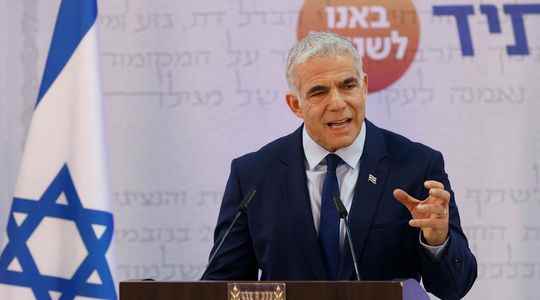For Israel, Russia has crossed the limits of the tolerable. Sunday, May 1, in an Italian broadcast, the Russian Minister of Foreign Affairs, Sergei Lavrov, got carried away in a long tirade on Ukraine and Nazism. Faced with the inconsistencies of Russian propaganda, which claims that kyiv is in the hands of neo-Nazis while its president has Jewish origins, Vladimir Putin’s chief diplomat did not back down: “I could be wrong, but Hitler also had Jewish blood.” In Jerusalem, the outcry is immense.
“Israel and Russia are entering a period of strong diplomatic turbulence, believes David Khalfa, researcher at the Observatory of North Africa and the Middle East for the Jean-Jaurès Foundation. Israel intended to maintain a form of balance on the Ukrainian file because of the double constraint which weighs on the country, caught in a vice between the need to preserve its strategic alliance with the United States and at the same time spare Russia which reigns supreme in the Syrian sky. revisionists and cynics of Lavrov on Hitler touch a very sensitive chord so much the memory of the Holocaust is present in the Israeli collective consciousness.
The Russians, masters of the Syrian skies and neighbors of Israel
From the beginning of the war, Israel had chosen caution. While condemning the Russian invasion, the Jewish state refrained from taking sides too vehemently and maintained a continuous channel of communication with Moscow. “Unlike Europeans, Israeli leaders cannot tweet inflammatoryly against Vladimir Putin every day,” said Emmanuel Navon, professor of international relations at Tel Aviv University and author of The star and the sceptre, diplomatic history of Israel (Hermann, March 2022). Israel has a common border with Russia, since the Russians control Syria’s airspace. Our two countries need to coordinate.”
Lavrov’s anti-Semitic remarks are a game-changer in Jerusalem. The Russian ambassador was summoned and Israeli ministers condemned Putin’s minister’s exit in undiplomatic terms. “This Israeli balancing act is no longer relevant, notes David Khalfa. This change in diplomatic posture was dictated by the worsening of the war and the multiplication of atrocities committed by the Russian army against Ukrainian civilians. Lavrov endorses and accelerates this development, with Israel’s position now approaching that of the United States and the European Union. Jerusalem has recently increased its humanitarian aid and is preparing to supply kyiv with defensive military equipment.” Israel plans to send helmets, bulletproof vests and radars to Ukraine. Israeli intelligence cooperation with the Ukrainian army could also change the balance of power on the ground.
However, this reorientation is not without risk for the Jewish state. Moscow showed its firmness and support for Lavrov’s remarks, assuring on Tuesday that the condemnations of the Israeli leaders were “anti-historic” and explained “why the current Israeli government defends a neo-Nazi regime in kyiv”.
Moscow announces retaliation
If its military support for Ukraine increases, Israel may fear reprisals from Russia. “The Russians will not take the risk of opening a new front in the skies of Syria against Israel, even though their initial war objectives have not been fulfilled in Ukraine and their army has shown its limits in the skies of Ukraine, judge David Khalfa: At the same time, Israel cannot afford to totally alienate the Russian superpower even if the latter will probably not fail to show its displeasure loudly on the diplomatic field by condemning Israel in international forums, particularly on the Palestinian file. .”
The change of tone in Jerusalem began with the discovery of the Boutcha massacres in early April. Present in Ukraine, the Israeli Minister of Health then denounced “the cruel Russian invasion”, and the Foreign Minister spoke of “war crimes”. Another turning point came on April 7, when Israel voted to exclude Russia from the UN Human Rights Council. In response, Moscow raised its voice with the Jewish state, strongly condemning the clashes on the esplanade of the Mosques in recent weeks, between Muslim worshipers and the Israeli security forces.
More serious for Israel, Russia announced in mid-April that Bashar Al-Assad’s regime had shot down an Israeli missile using Russian weapons. The escalation, for the moment verbal, is not likely to fall between Moscow and Jerusalem.
